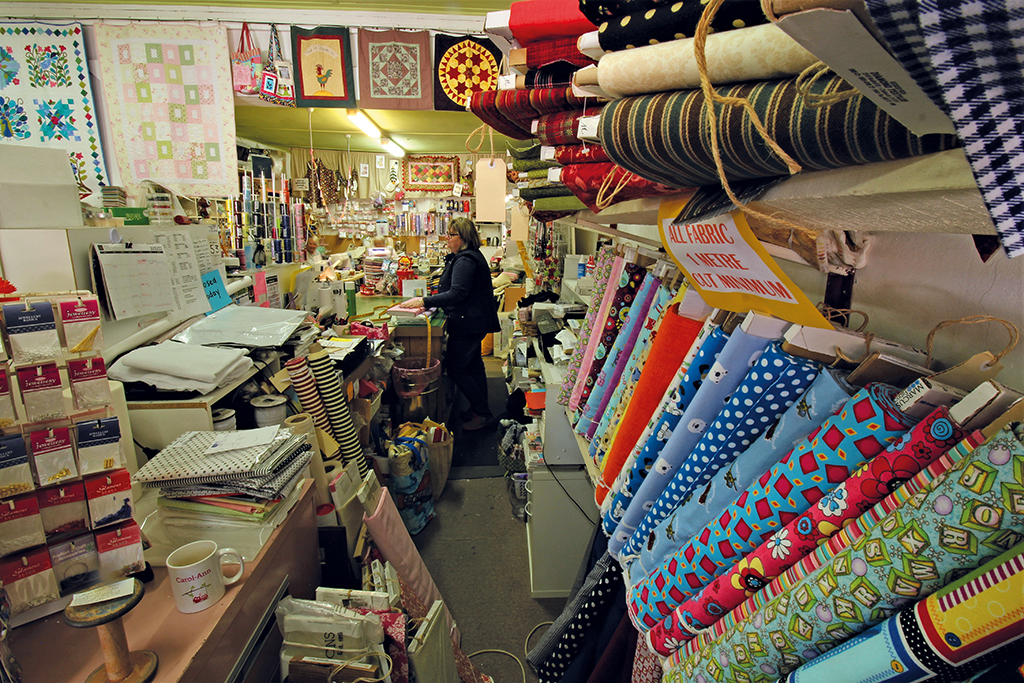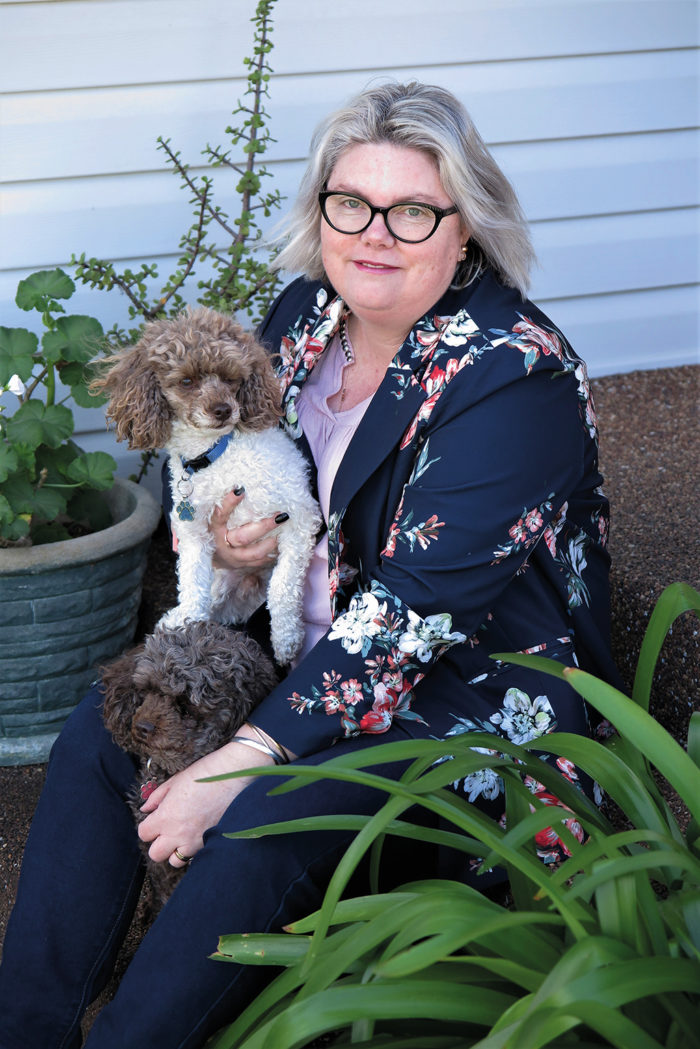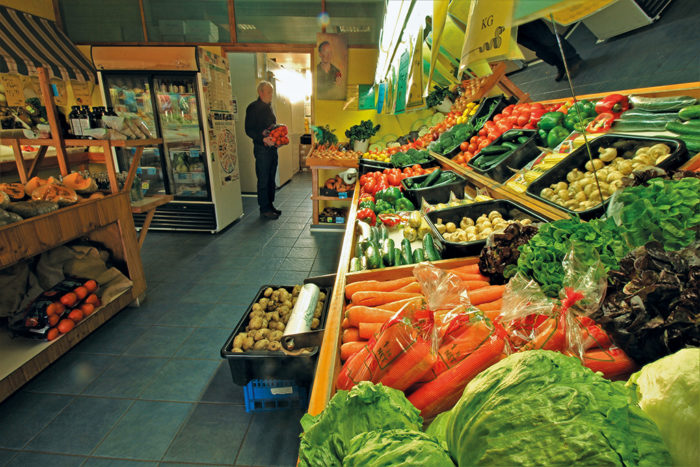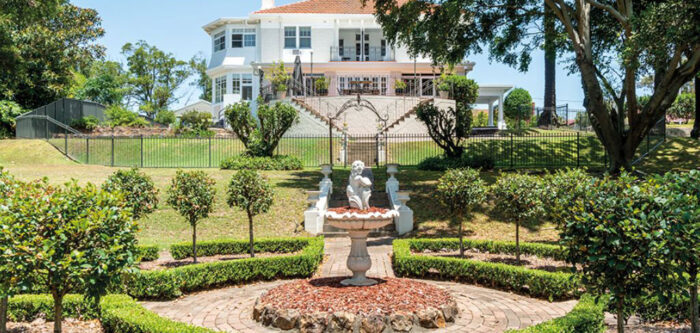
Longstanding
Ken Rubeli views commerce in a small town through a photographic lens.
Small-town businesses. I may call upon them daily or weekly or rarely, but I know their faces, their names, and appreciate their service. They are the hub of the wheel. They keep a community together, year after year after year.
It is more than a year now since I embarked on a project to photograph the businesses in my small town; specifically those that had operated with the same people at the same premises for fifteen years or more. In a community of two thousand people I identified thirty locations, each with a face or faces familiar from my own three decades living in the Hunter Valley, working at one job at one address. We were all in this together. Every one of us, to a greater or lesser extent, knew everyone else.
After longstanding operation every business finds itself a pattern of operation. Opening up in the morning leads to better days and worse, but there is a routine, and most comfortingly there are familiar surroundings, a familiar accumulation of the paraphernalia of one’s enterprise. It is home away from home.
As a photographer it was the paraphernalia that attracted me most. The person or people were an essential component, but I stood them back in the composition of the picture, their personality somehow elucidated by the workspace they had built and now functioned within. I utilised an extreme wide-angle lens, the camera on a tripod – sometimes held to a wall or even the ceiling to get the precise angle that best presented the space.
Together we were building a portfolio of a town’s dedicated entrepreneurs. Most had never before been formally photographed at their place of work.
All that was in August/September 2019. The surrounding agricultural community – predominantly beef and dairy producers – was struggling in a time of drought. The fear of a severe bushfire season was intensifying. The town was not experiencing growth in population, or prosperity. The future for most businesses showed little prospect of an upward swing. At best we would all just soldier on.
The resulting photographs were presented to the business owners, a portrait of their everyday life. They were displayed at an exhibition in the town. Some are now framed and hung for a time in the corridors of John Hunter Hospital, a ‘snapshot’ of a moment in time in the Hunter Valley’s commercial life.
For all their longevity, not all these subjects, these people, are there today as they were then. It is not so much the disruption of a global pandemic that has brought about the change but simply the passage of time. There has been tragedy. There has been retirement as age advances. There has been an opportunity to take life in a new direction. For most, though, business just goes on much as before, because that is the well-trodden path of the way things are.
The town is Dungog, but it could be the story of another place or even another time.
Creative crafts & fabrics
I haven’t seen Carol Ann Cummings for months. Her shop, in the main street, was Creative Crafts and Fabrics, and supplied the district with everything from needles and thread to bolts of cloth, balls of wool and buttons. But Carol Ann provided something substantially greater: there was a large table towards the back of the shop and there, three or four times a week, women – it was only women – gathered as a quilting group, under Carol Ann’s tutorial. They paid a small fee to be there, and they came reliably and regularly. It was a fixture in their calendar, a togetherness that collectively and individually gave them strength. Carol Ann was there for sixteen years, from her children‘s early childhood to the end of their schooling.
The shop today is an artist’s workplace and a gallery, benefiting from a growing presence of visitors coming to town. Carol Ann I find at home on a Saturday morning. She looks rejuvenated. In the year since she closed the shop, she has undertaken courses at TAFE in business administration and real estate. She is now employed in strata management and loving it. Wings spread, she is flying.
Dungog’s fruit shop
Peter Wade’s fruit shop was a place of healthy produce but also a place of conversation. Small towns rely on ‘the grapevine’ for news, and a chat amongst the potatoes, cauliflowers, bananas and peaches – whether it be with Peter or another customer or a small committee established for the occasion – was a ‘reliable source’ and reason enough to be there quite apart from the victuals for the home table. Peter was masterly in his capacity for diplomacy, his sensitivity to what might reasonably be passed on freely, what might be shared with only a select few, and what might most appropriately be kept to himself.
Peter was a mere eighty years old when he retired. He and his enterprise are sadly missed, the supermarket now being the town’s sole source of fruit and veg supply (beyond a Saturday-morning growers’ market). A flower and gift shop has opened up where Peter was for seventeen years. I pay a visit to Peter where he continues to work – with cattle and horses on his family farm at Mount Douglas. I photograph him by the gate his father made.
Read more in the Autumn issue of Hunter & Coastal Lifestyle Magazine or subscribe here.



